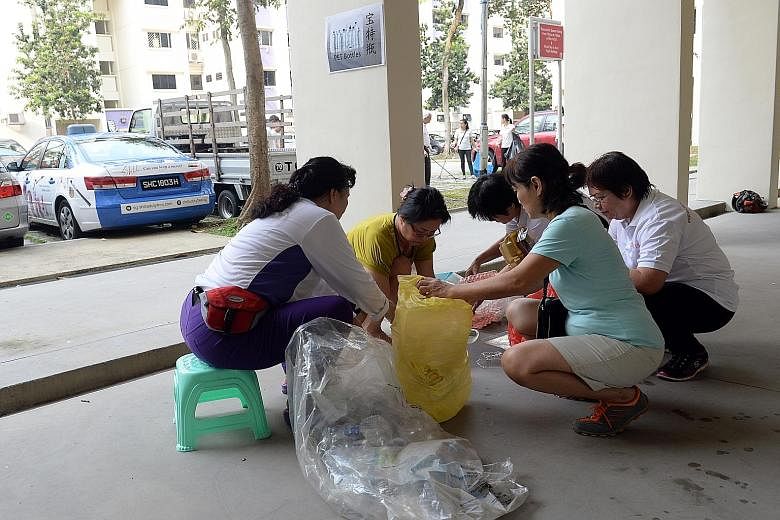More residents in Nee Soon will learn how to sort out items that can be recycled, thanks to a new recycling point launched yesterday.
The recycling point will serve as a meeting place where residents can learn from volunteers how to sort out recyclable items such as paper, plastic and metal.
More than 10 volunteers will be stationed at the void deck of Block 868, Yishun Street 81, where the recycling point is, once a month.
Yesterday, more than 100 residents showed up with items such as plastic bottles and old clothing to kick-start the opening of the new recycling point.
Among them was Mr Toh Boon Teck, 62, who said he has learnt about the kind of items that can be recycled and how they should be sorted before being put in recycling bins. "Previously, I didn't know we had to sort out the items before placing them in the bins," said the warehouse assistant. "I (also) think it's important for us to reuse our items as much as we can."
A volunteer at yesterday's event, engineer Michael Toh, 41, said residents were also taught how to separate different kinds of materials for more efficient recycling.
Paper in black and white, for instance, is usually easier to recycle than paper in other colours, and should thus be separated.
Mr Toh added: "It's good to teach people how to recycle. At the end of the day, it's all about cutting down unnecessary usage and saving our resources for the next generation."
The new recycling point adds to another one launched elsewhere in Nee Soon South two years ago.
Said Member of Parliament for Nee Soon GRC Lee Bee Wah: "While recycling is common these days, many are still unaware of the importance of separating recyclable materials. Our initiative is pro-active... Through the experience, participants can also become ambassadors for the movement."
By 2030, Singapore wants to have an overall recycling rate of 70 per cent. However, its domestic recycling rate has been falling. It fell from about 20 per cent in 2013 to 19 per cent last year.


